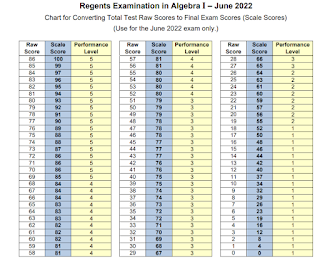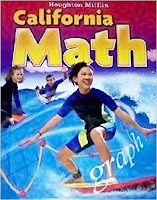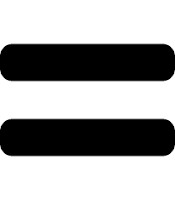Ed Knight is a teacher in New York state. Writing at Medium, he points out the disturbing fact that the vaunted "New York Regents" exams required to graduate from high schools in the state have become completely trivial to pass. For example: In the Algebra Regents, you can ignore all of the (already simple) open-response questions, and just mindlessly mark "C" for all the multiple-choice questions, and you'll be given a passing grade.
Answer all Cs, you get 9 right. Each one is worth two points. That’s 18 points, enough to pass.
More than enough to pass, in fact.
I really didn’t know what to say when I first saw this. I suppose I was thinking like Chuck Heston. “They finally, really did it.” This is jaw-dropping malfeasance. I wouldn’t believe that anyone who claims to care about kids could let this happen — not until I saw it happen.
Shame on NYSED and the Regents.
Really, the root of this problem is the insane scaling procedure that the NY Regents has been doing for years to fake up the test scores. Below is the most recent test's table for converting a "Raw Score to a reported "Scale Score". The scale score is 0-100, making recipients thinks it's a percentage, but it's not. For example: if you score a raw 27 out of the possible 86 points (that's 31% correct), this then gets converted to a reported Scale Score 65 -- i.e., a Performance Level of 3 out of 5, which is considered passing.
Think about that: for years, the NY Regents has considered a score of about 30% as passing for a basic (very simple!) algebra test. And yes, this was exacerbated because for the pandemic years (still ongoing), the policy was adjusted to accept even lower scores than that -- now as low as 20% (i.e., Raw 17, reported as a Scale 50).
Read more at Medium: Guessing C For Every Answer Is Now Enough To Pass The New York State Algebra Exam





